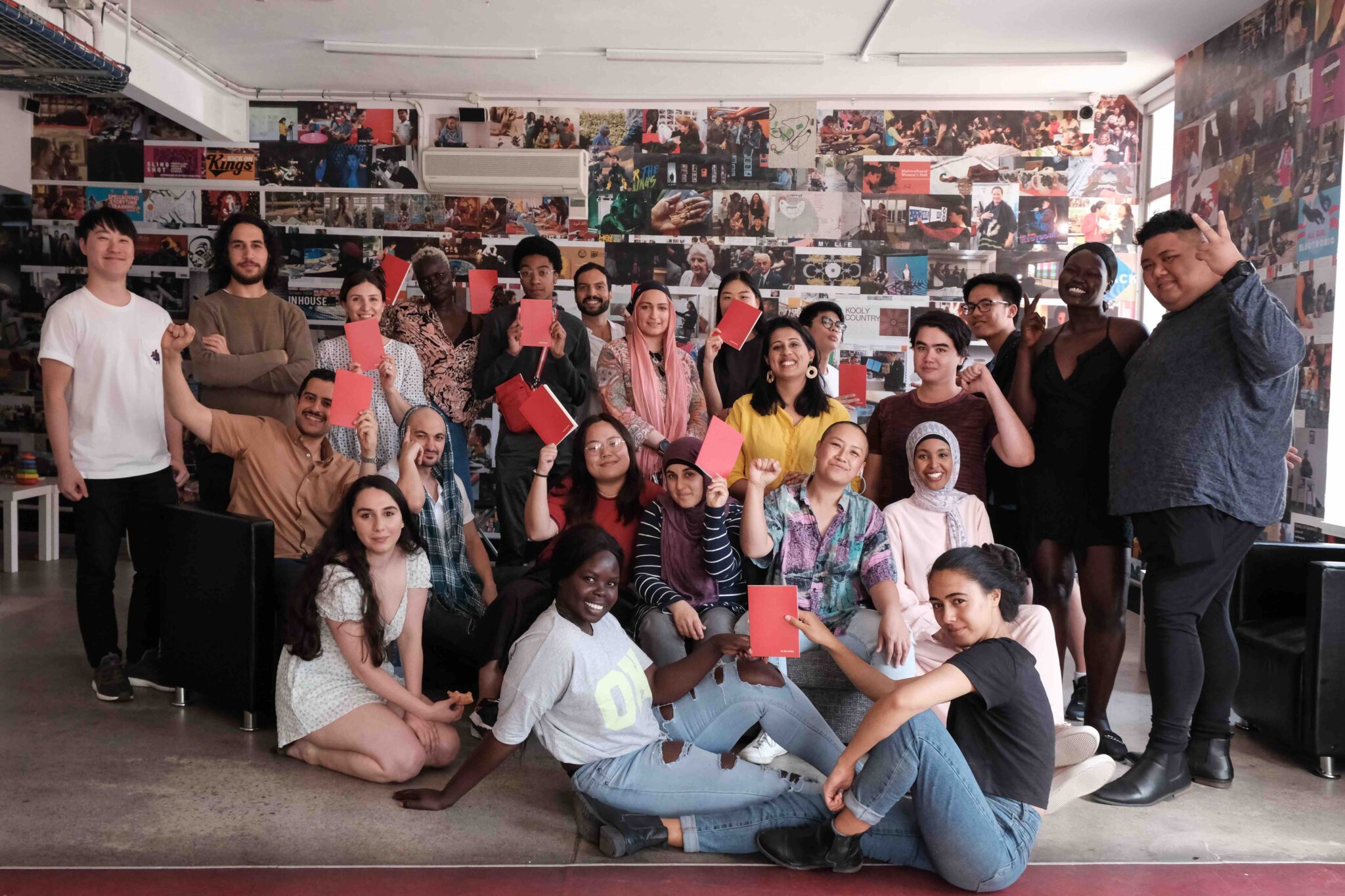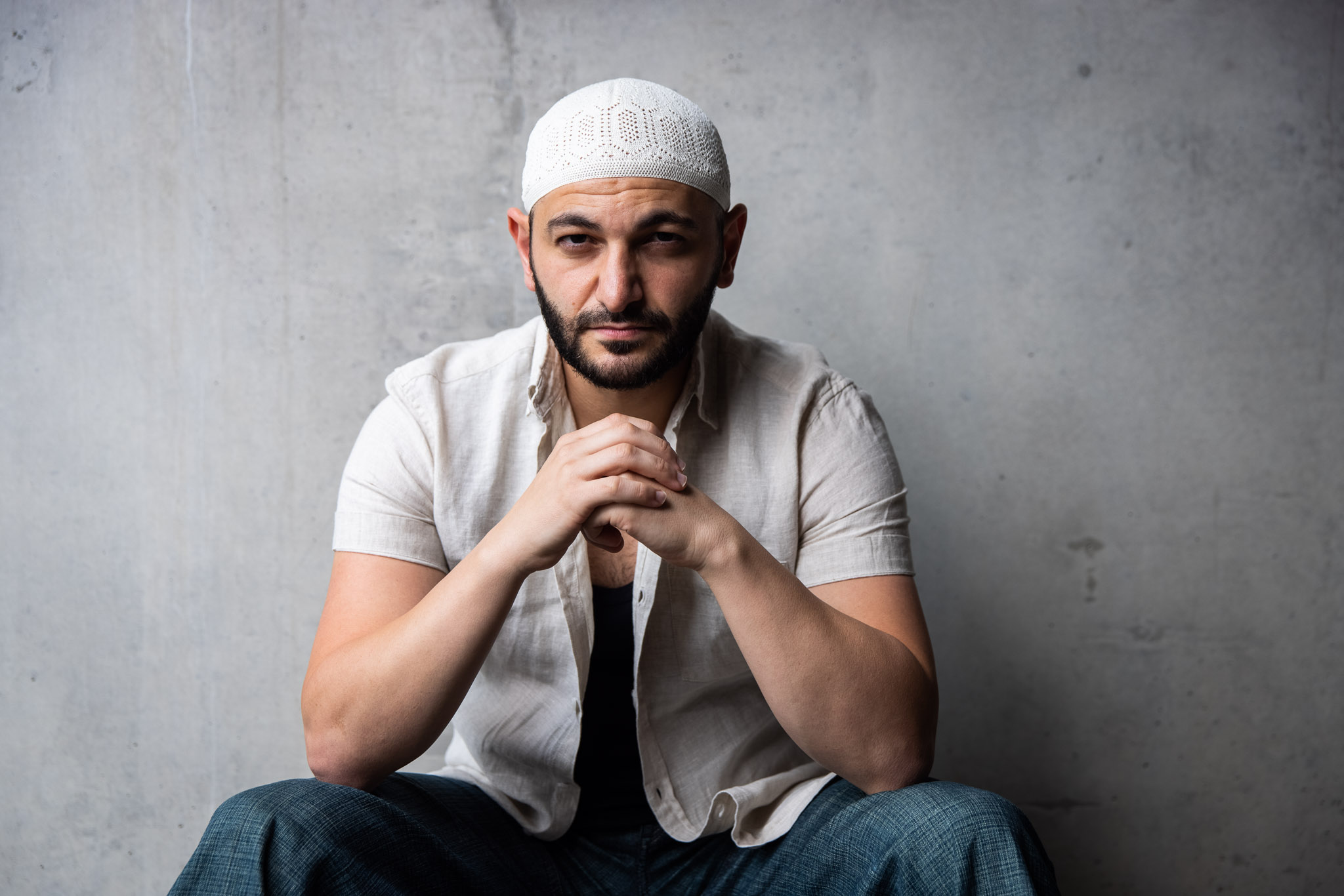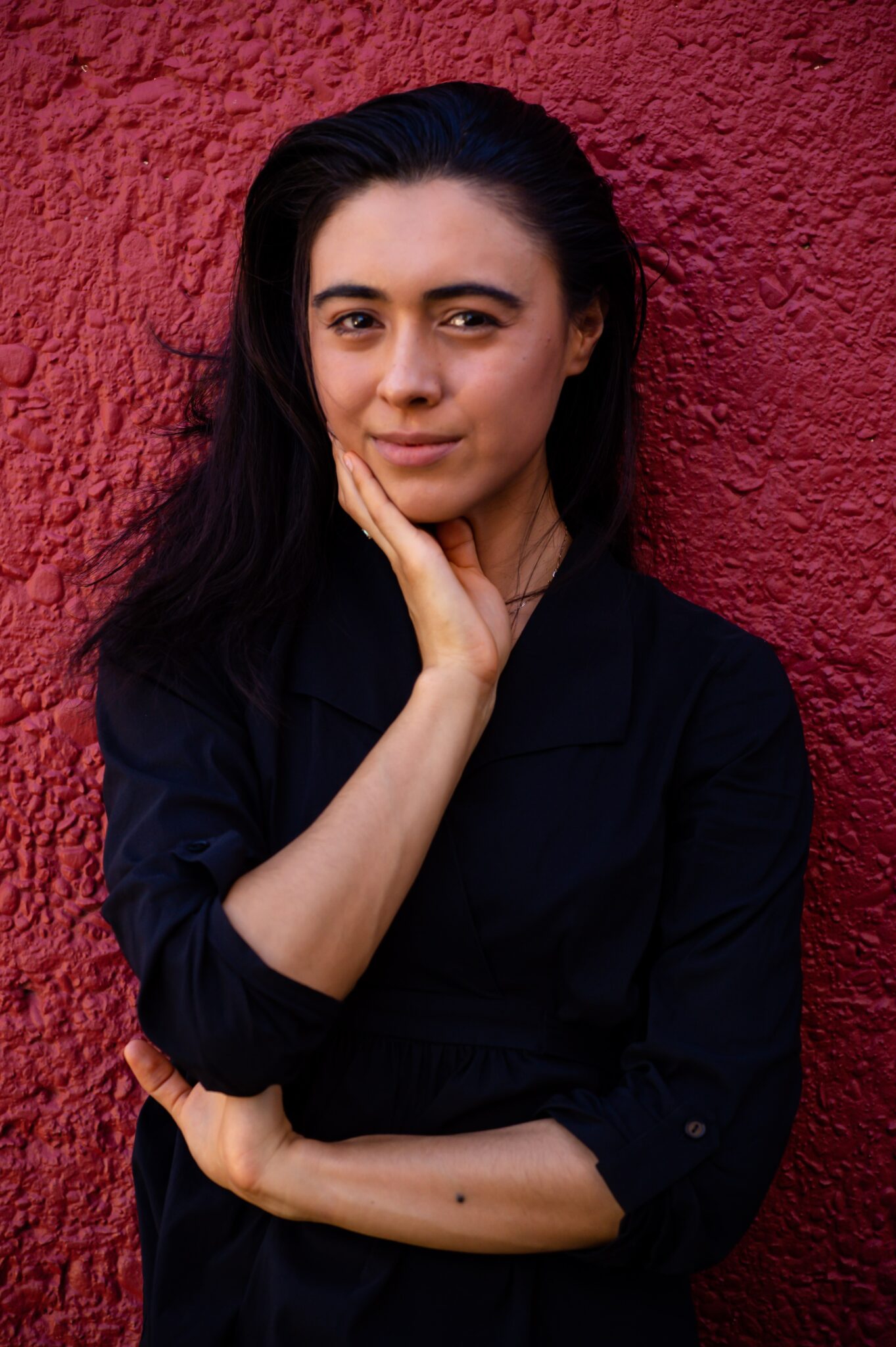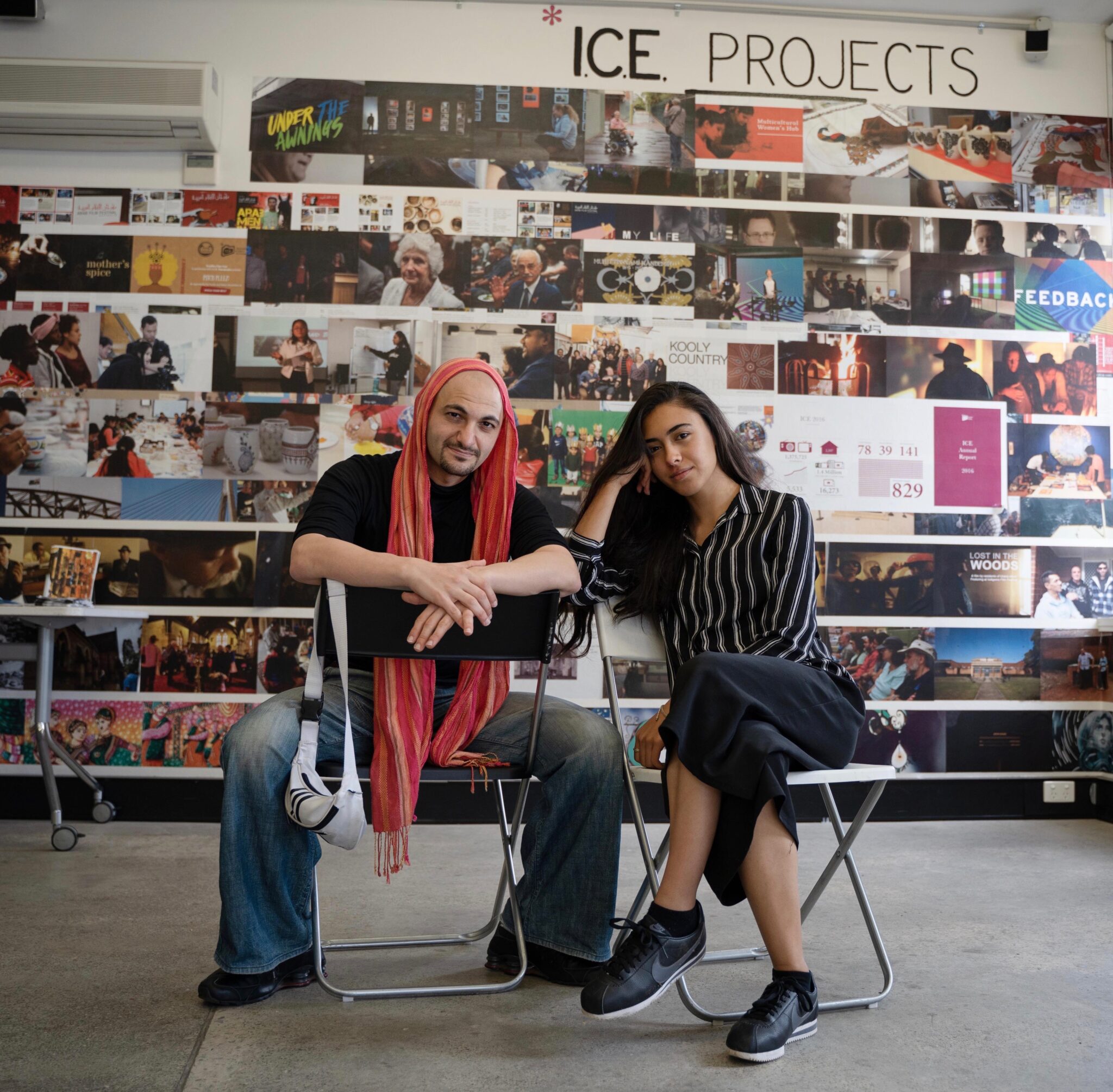If you type ‘Sweatshop Literacy Movement’ into a search engine and scroll down far enough, you’ll find a University of Western Sydney media piece from 2013 that describes Sweatshop as “a new movement in Western Sydney that is quickly gaining momentum and empowering scores of potential local writers.”
Nearly twelve years on, Sweatshop is well into its mission of literacy empowerment and diverse storytelling. Honi had a chance to meet founder Michael Mohammed Ahmad and General Manager Winnie Dunn at Sweatshop HQ and speak all things wisdom, writing, and Western Sydney.

What prompted the founding of the Sweatshop Literacy Movement?
Sweatshop draws its values and strength from the teachings and philosophies of the late African-American scholar and intersectional feminist, bell hooks, who argued:
“All steps towards freedom and justice in any culture are dependent on mass-based literacy movements — because degrees of literacy determine how we see what we see.”
Western Sydney is home to over 2.6 million people, making it the most densely populated region in Australia. Furthermore, Western Sydney is home to Australia’s largest communities of people from Indigenous, migrant and refugee backgrounds; with more than half its population being able to speak a language other than English.
Unfortunately, the communities of Western Sydney have historically been represented in politics, media and arts in a negative light. The dominant and mainstream narratives have often focused on one-dimensional portraits about poverty, ethnicity and crime. The diverse communities of Western Sydney, alongside equally diverse communities across Australia, have many unique, compelling and eclectic stories to share with Australia’s growing population of readers.
As one of Australia’s leading FNPOC-led literary organisations, we founded Sweatshop in order to bridge the gap between diverse Australian writers and general Australian readers on a national scale. Our organisation has created empowering and inspiring bodies of work which achieve the following outcomes:
- Subvert negative and damaging stereotypes about marginalised groups within Australia; providing empowering, complex, humanising and positive counter-narratives.
- Nurture artistic, social and economic opportunities and wellbeing among emerging and established arts practitioners from FNPOC backgrounds.
- Encourage unity, empathy and harmonious co-existence between various cultural, ethnic and religious groups within Australia; leading to a safer, happier and healthier version of a multicultural nation.
Can you explain what Sweatshop does and your primary objectives for this movement?
Our purpose is to deliver arts and cultural programs for diverse writers throughout Australia — with a key focus on Western Sydney — which centre and celebrate ‘own-voices’ narratives and provide original contributions to world knowledge.
Sweatshop’s annual program includes an ongoing writers’ group initiative for First Nations and POC storytellers from Western Sydney; an ongoing writers’ collective for First Nations and POC women from Western Sydney; and creative writing residencies and workshops in schools, universities, arts centres and literary festivals throughout Australia. The outcomes of these writers’ group initiatives and writers’ residencies and workshops include the development of single-authored texts, anthologies, poetry collections, live performances and theatre productions, short films, podcasts and writing seminars.
Together, these programs and outcomes seek to highlight new and empowering narratives about some of Australia’s most underrepresented communities, which challenge and subvert mainstream stereotypes about the cultural ‘Other’.

What was the reasoning behind the name ‘Sweatshop’? And a silly follow-up, how often have people googled ‘sweatshop’ before resorting to ‘sweatshop western sydney’?
People are always asking us why our organisation is called Sweatshop. ‘Where are the sewing machines?’ one writer scoffed when she visited our office for the first time.
The origin of the word ‘text’ is from the Latin, which means ‘woven’. No person who works in Sweatshop comes with a needle and a thread but there is a lot of stitching. The goal of Sweatshop is the same as that of any sweatshop: to weave. And just like a sweatshop, most of the people that become involved with us identify as marginalised: young writers from low socio-economic and/or diverse backgrounds who struggle to have their voices heard and their experiences valued amongst Australia’s dominant White culture.
It is only the outcomes of Sweatshop that differ from what we consider to be a real sweatshop. While sweatshops are spaces that disempower and dehumanise people of colour, Sweatshop Literacy Movement aims to provide Australians from Indigenous, migrant and refugee backgrounds with the tools to counteract racist, sexist, classist and homophobic narratives that are often encoded in mainstream media, film, television, computer games and literature.
The literacy movement is targeted towards Western Sydney residents, and First Nations and POC communities (FNPOC). How has the movement flourished within this demographic and which initiatives have enjoyed greater popularity?
We founded Sweatshop Literacy Movement in 2012. As conscientious people of colour who were raised, live and work in Western Sydney, we were committed to establishing a self-determined grass-roots literary organisation which could address the immediate needs of marginalised and underrepresented reading and writing communities from the heartland of multicultural Australia.
FNPOC communities in Western Sydney — as well as equally diverse communities throughout Australia — have often struggled to find adequate and equitable artistic representations in the Australian arts sector. To date, less than 20 percent of Australian books are about and/or written by people from First Nations and POC backgrounds.
In order to address this significant gap in our arts and cultural landscape, Sweatshop focuses on two primary needs of our writing communities:
1) Skills development: Sweatshop Literacy Movement is dedicated to providing our program participants with expert-knowledge in the development of new, original and complex Australian stories across various mediums (including prose, poetry and nonfiction) and various genres (including social realism, speculative fiction and magic realism).
2) Public representation: Sweatshop Literacy Movement provides ongoing opportunities for our program participants to develop an original body of work in their chosen form/s of writing, which are published in our numerous print and online publications. Alongside audio, video and live performance opportunities, these texts offer our writers a platform to share their eclectic and multi-lingual stories, experiences and histories with the Australian public. In turn, members of the Australian public are provided with an opportunity to read and discover new and humanising narratives by and about underrepresented communities within the Australian population. These communities include storytellers from Indigenous, African, Asian, Arab, South American, Pasifika and even some European backgrounds.
Since 2012, Sweatshop has supported over 10,000 First Nations and POC primary and high school students throughout Australia (the majority of whom are from Western Sydney), to develop their critical reading and writing abilities, as well as produce short stories, poems and essays which have been presented in print, audio, video and live theatre outcomes.
Alongside Sweatshop’s annual school programs, our organisation has provided high quality writing collectives, mentorships and residencies to mature-aged established and emerging writers from First Nations and POC backgrounds. Facilitated by a team of award-winning and acclaimed authors, these fellowships have provided literacy and literary skills to over 500 First Nations and POC writers, as well as numerous opportunities to publish and publicly present their work.
Whilst there are several literary organisations in the western suburbs of Sydney, Sweatshop Literacy Movement is the first and only Western Sydney-based literary organisation in Australia that is entirely run by and for First Nations and POC communities with strong ties to the region.
To date, Sweatshop has collaborated with some of Australia’s leading writers, thinkers and arts practitioners, including Ghassan Hage, Shankari Chandran, Amani Haydar, Randa Abdel-Fattah, Evelyn Araluen, Jumana Bayeh, Sara Saleh, Shirley Le, Phoebe Grainer, Daniel Nour, Tyree Barnette, Sarah Ayoub, Sela Ahosivi-Atiola, Jazz Money, Natalia Figueroa Barroso, Sheree Jospeh, Michelle Law, Sisonke Msimang and L-FRESH The LION.

Building upon this successful track record, Sweatshop continues to run literary initiatives that dismantle damaging stereotypes while centring and celebrating Australia’s linguistic diversity in new and original projects and programs, including an ever-growing catalogue of Australian writing.
You focus on “reading, writing and critical thinking”, the latter being a buzzword that university students are very familiar with. How does Sweatshop interpret critical thinking in its activities, workshops, publications and events?
You’re absolutely right that ‘critical thinking’ has become a bit of a buzzword in recent years, while most people don’t really question what exactly ‘critical’ means in this context. Isn’t it ironic? We need to start thinking critically about critical thinking! For Sweatshop, critical thinking is the ability to reverse engineer the creation and dissemination of information.
Before we can create complex and sophisticated alternatives to harmful and dominant narratives, we must first be able to examine texts (books, films, tv programs, news media) and uncover the underlying themes which reinforce systems of power and oppression: including those that are racist, white supremacist, orientalist, sexist, misogynous, patriarchal, classist, capitalist, homophobic, heteronormative and ableist.
You conduct a lot of workshops within schools. What is covered in those workshops, and have you seen a wider engagement in the Arts amongst students since Sweatshop began?
Oftentimes, a well-intentioned teacher will invite us to help their school because they are concerned that ‘the students aren’t interested reading’. The reverse is actually true: it’s not that the students aren’t interested in reading, it’s that the readings aren’t interested in the students!
During our workshops and residencies, school students are introduced to local and diverse works of literature, which mirror their lived experiences and realities. Whenever students discover books like The Lebs, Funny Ethnics, After Australia, Another Australia and Blacklight, their first reaction is: ‘I didn’t know you’re allowed to write books about us!’
All of a sudden, the students are reading and writing about their own unique experiences as young people from Indigenous, migrant and refugee backgrounds.

What is the most rewarding aspect of running Sweatshop? And conversely, what is the most demanding aspect that you wish you could avoid?
The most rewarding aspect is when you meet a young, talented, hard-working critically conscious First Nations person or Person of Colour, and we work together for several years to witness the creation of their debut publication. There is nothing more inspiring and uplifting than experiencing the tremendous impact that this journey will have on a writer’s life, and by extension, the tremendous impact that the writer’s work will have on their friends, family and community; who finally feel seen for the first time.
The most demanding aspect of our work is convincing ‘wannabe’ writers that ‘good writing’ is not just a natural talent — it is a skill and craft that a person can actually learn and develop.
To make things as easy and clear as possible for new writers, we often invite people to read ‘Bad Writer’ by Sweatshop Founding Director, Dr Michael Mohammed Ahmad, before they begin their professional writing journey.
How does one get involved with Sweatshop? Is there a criteria, such as being of a certain age or having studied literature in any capacity?
Sweatshop is proud to support all First Nations people and People of Colour who seek to develop their critical and creative writing skills, and have their voices heard. The best way to find out about our current and upcoming projects, as well as apply for our various mentorships and writers’ collectives, is to visit the Sweatshop website.
What are some exciting projects planned for 2024 that you can inform Honi readers about?
We have just released our latest anthology, Povo. Edited by Indonesian-Australian writer, Adam Novaldy Anderson, this dynamic new book features thirty-seven emerging and established writers who explore Australia’s complex socio-economic conditions through a collection of short stories, essays, poems and street illustrations.
Secondly, we are extremely proud to announce that Sweatshop general manager, Winnie Dunn, will be releasing her debut novel, Dirt Poor Islanders, in April. This trail-blazing new book will be Australia’s first-ever mainstream novel by and about the Pasifika-Australian community.
Throughout 2024, we will continue to deliver a fresh program of ground-breaking publications, public dialogues, performances and book launches, and various mentorships and collectives for diverse emerging writers.
The best way to keep up-to-date on all our upcoming initiatives is to follow us on Facebook, Twitter and Instagram.
Michael Mohammed Ahmad is the founding director of Sweatshop Literacy Movement and the author of three award-winning novels: The Tribe (Giramondo, 2014), The Lebs (Hachette, 2018) and The Other Half of You (Hachette, 2021). He is also the editor of several critically acclaimed anthologies, including After Australia (Affirm Press, 2020).

Winnie Dunn is a Tongan-Australian writer and editor from Mount Druitt. She is also the General Manager of Sweatshop Literacy Movement and holds a Bachelor of Arts degree from Western Sydney University. Her work has been published in The Guardian, Griffith Review, Meanjin and Sydney Review of Books.







